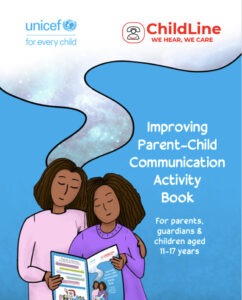What is Depression?
There is nothing wrong with feeling sad and down sometimes. In fact, most of us feel ‘out of it’ at some point in time or another. These feelings are normal. Things like an argument with a friend, a breakup, doing poorly on a test, or a best friend moving away can lead to feelings of sadness, hurt, disappointment, or grief. These reactions are usually brief and go away with a little time and care.
But when those feelings of sadness seem to last for a long period of time, or dominate and interfere with functioning in everyday life, it can become an illness. This illness is called depression. Depression is a strong mood involving sadness, discouragement, despair, or hopelessness that lasts for weeks, months, or even longer. It eventually interferes with a person’s ability to participate in normal activities.
Why does it happen?
Depression can happen for many reasons. It is usually caused by a combination of factors, rather than by any one thing. These are the most common factors:
- Events or personal experiences – Life changes may sometimes be a trigger for the onset of depression. Life changes may include family problems, the death or loss of a loved one, feelings of neglect, abuse, bullying and physical illness. Depression can also be triggered if too many changes happen in your life too quickly.
- Risk factors -People are more at risk of becoming depressed if they are under a lot of stress, feel alone and lack the support of friends or family.
- Biological factors – Depression may run in families due to genetic factors. It is also more common in girls and women compared to boys.
Do I have depression?
Intense feelings of sadness, hopelessness and isolation are some of the most dominant feelings associated with depression.
If you are suffering from depression, you may:
- Be moody and irritable
- Become withdrawn – avoiding friends, family and regular activities
- Feel guilty or bad, even have feelings of hate toward yourself
- Feel unhappy, miserable and lonely a lot of the time
- Feel hopeless and want to die
- Find it difficult to concentrate
- Neglect your personal appearance
- Not be able to sleep enough, or you may be sleeping too much
- Be tired and lack energy
- Experience changes in appetite
- Experience minor health problems, such as headaches or stomach-aches
- Have very negative thoughts about yourself, your life, or others
- Not enjoy things anymore
Friends or family members may notice that the person seems to be pulling away or isolating themselves from everyone else. They may no longer do the things that once interested them. Depression can be mild or severe. At its worst, depression can create such feelings of despair that a person thinks about suicide.
How do I get help?
Depression is a serious illness. Like any other person who is ill, a person who is depressed needs support, professional help, and sometimes even medication.
If you experience some or most of the symptoms above, try these tips to overcome your depression:
- Talk to someone you trust – Talking about what you are going through with someone is one of the simplest and most important ways that you can deal with your emotions. It may be a friend, a parent or other family member, or even a teacher- just knowing that you don’t have to go through this ordeal alone is a great relief.
- Call for Help – If there is no one you feel comfortable talking to, call ChildLine at 800-4321 or 131.
- Get professional help – Talk to a therapist or counsellor who can help. You may need to see a psychiatrist to find out if any medication can also help.
- Write it down – If you really are not ready to share your situation with anyone, try writing down your feelings in a diary or journal. This provides an outlet for you, so you do not need to keep everything bottled up inside.
- Do activities – Keep active. Even though it may seem hard, try to do things that would take your mind off of your situation. Hobbies, sports, even helping those around you can help you to cope with your feelings of depression.
Resources
http://www.depression.com/causes_of_depression.html
http://www.rcpsych.ac.uk/mentalhealthinfo/mentalhealthandgrowingup/depressioninchildren.aspx
http://kidshealth.org/teen/your_mind/mental_health/depression.html
Additional Information
http://psychcentral.com/depquiz.htm
http://helpguide.org/mental/depression_tips.htm








